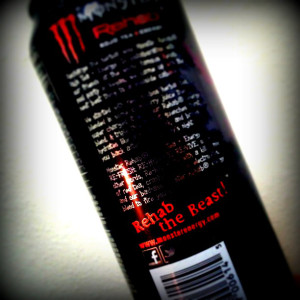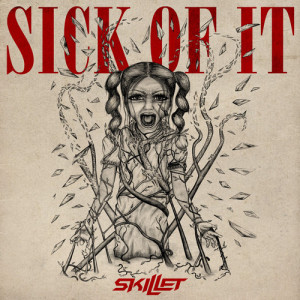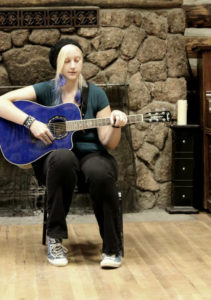This is a 7.5 minute video on defining spiritual abuse. Cindy Kunsman explains the basic concepts of David Henke’s model of spiritual abuse.
Month: October 2016
Emotional Hypothermia, Part 3: The Angry Monster
Editorial Note: The following is reprinted with permission from Eleanor Skelton’s blog. It was originally published on October 3, 2014.
Content note: self-harm
In a group session summer before last with my counselor and my parents, my mom mentioned the time my sister asked her why I was so logical and scientific when one of our dogs was being euthanized in his old age.
“How could Eleanor be so cold?” she’d asked. My mom said, “But I saw Eleanor sobbing in her car afterwards. She wouldn’t cry in front of us.” I had always felt I had to be strong in front of my siblings.
My counselor turned to me and said, “That’s a great skill if you want to be a surgeon. But even those guys end up crying in my office years later.”
– – – – – – – –
Fast forward to March 2014.
I was talking to my counselor again about feeling. But this time, I was afraid of my own anger.
“Clench your fist,” he said. “I want you to hold it tight, feel the anger. How does that feel to you?”
I was so out of practice. “It feels…red.”
The secret side of me
I never let you see
I keep it caged
But I can’t control it
So stay away from me
The beast is ugly
I feel the rage
And I just can’t hold it…
– Skillet, Monster
– – – – – – – –
That same month, I had tried out for my first acting role. I was on the red team (ironic, right?) in the crowd in New Life Church’s Easter production, The Thorn. But the first time we did mob scene, someone on the director team pulled me out during rehearsal because I didn’t match the group.
I wasn’t projecting enough anger.
The passion play in Texas my family went to every year made a big impression on me as a sheltered child, and I had always wanted to be in it. Call it fulfilling a childhood dream. And my worst nightmare.
Unrestrained mob violence like the French Revolution or the crowd at Jesus’ crucifixion always terrified me, partially I think because anger unleashed in my family released chaos. We were always playing duck and cover between explosions, like living in a psychological war zone.
Small wonder I couldn’t stand seeing the monster in myself.
It’s scratching on the walls / In the closet, in the halls / It comes awake / And I can’t control it…
– – – – – – – –
 It was dark and maybe raining. I was riding in my Fisher-Price car seat. My parents were driving home.
It was dark and maybe raining. I was riding in my Fisher-Price car seat. My parents were driving home.
I hardly ever got to see other children because I was homeschooled, and leaving a birthday party for a coworker’s daughter had left four-year-old me in a perfect rage.
My tantrum reached a pitch and snapped. What was the worst thing I could scream at my parents to get them to stop ignoring me? I didn’t know any swear words.
CRUCIFY HIM! CRUCIFY HIM! CRUCIFY HIM!
– – – – – – – –
It worked. They were disturbed. But we never talked about it. Or any of my other outbursts. All I knew was deep, deep shame.
Why should anyone love the horrifying small child who had screamed for blood?
So I turned the anger within. Inflicting pain on others hurt too much afterwards, so it was easier to hurt myself, bruising, cutting. It was better if I bled. If I paid for my own crimes.
Of course the guilt posed serious problems for my debut in acting. My counselor suggested I step out of the mob scene entirely when my recurring graphic dreams about the crucifixion and finding Jesus’ mutilated dead body resurfaced, but I told him I believed it was time to face down the nightmare.
It’s hiding in the dark / Its teeth are razor sharp / There’s no escape for me / It wants my soul, / It wants my heart / No one can hear me scream / Maybe it’s just a dream / Or maybe it’s inside of me / Stop this monster!
– – – – – – – –
So just before show week in April, I talked to my pastor who used to play Jesus at my first church in Texas.
After spilling everything, I said, “But…Jesus did say ‘Father, forgive them.’ So…I guess that means…me too?”
He looked half-amused and incredulous. “Of course you too, what do you mean you too? Christ sees you as a jewel. How does that make you feel?”
I was dumbfounded. My childhood hero knew my darkness. He didn’t shame me or ignore it. He knew it. And it didn’t frighten him. I could finally believe that the real Jesus did, too.
I cried. For hours. I was forgiven.
I went home and had a blast during show week. I let loose my anger during mob scene. A woman in the front row jumped when I raged. I had made my peace with the angry monster.
In my next post, I’m going to talk about dealing with another negative emotion, depression, outside of fundamentalist Christianity.
Emotional Hypothermia, Part 2: Dare You To Feel
Editorial Note: The following is reprinted with permission from Eleanor Skelton’s blog. It was originally published on September 23, 2014.
“We’re talking about anger here, Fraser, a human emotion.
Are you human? Because if you are, human beings feel things, okay?
They feel anger, they feel love, they feel lust and fear, and sometimes,
and I know you don’t want to hear this, sometimes they even cry.”
– Ray, Due South (2.17), “Red, White, or Blue”
My wall shattered one morning.
I was merging onto I-25 early on a gray Monday in January 2012 to head to campus.
The weekend before, my family had been out of town and I’d watched some brand-new Faith Lessons by Ray VanderLaan, a Biblical archaeological DVD series, and sobbed for the first time in months at the idea of radical love, acceptance even when I failed to measure up. That I was worth love simply because I was alive.
And then Switchfoot’s song “Dare You to Move” came on 103.1 WAY-FM. I lost it.
I’d made a pact against crying around the age of 8 or 9. Crying showed vulnerability and weakness, neither of which I felt safe exposing around my family or church members. I prided myself on my refusal to cry at Passion Plays or sad movies. My mom would recount the entire Easter story with A Beka Bible flashcards, depicting the scourging in graphic detail. She cried. Not me.
I could hold it in when no one else could. I told myself over and over: “I am ice. Ice does not melt.”
I did Elsa’s whole “Conceal, don’t feel” thing before it was cool.
Well. Then I couldn’t cry at all. Even in private.
Most of my teen years were spent reversing the choke hold I’d imposed on my tears. And halfway through college, the rest was crumbling. “All the walls you built up / Are just glass on the outside / So let ’em fall down / There’s freedom waiting in the sound.” (Tenth Avenue North)
 I described the experience to my friend Elraen later that cold wintry week on chat during one of our all-nighters.
I described the experience to my friend Elraen later that cold wintry week on chat during one of our all-nighters.
I said, “I wasn’t really expecting it. It was one of those times when Jesus really gets your attention, and you realize just how much He really loves you, and you cry your eyes out. Somehow…I’d had two experiences like this in high school…but nothing quite like that since late 2005.”
“I guess I thought maybe experiences like that were over in my life.”
Elraen knew what I meant. She responded, “I hope that more and more God can bring moments like that into your life, breaking through the walls that have been put up to shield yourself from hurt […] I hope that healing comes and drives deeper and deeper into your life. Because He DOES love you. So, so much, no matter what [people] say about you or accuse you of — His love does not ever change.”
My soul was reawakening, but I’d have to fight my tendency to lock up. Numbness felt like being a ghost in my own existence, but at least it kept pain at bay.
The next few months, I felt like this little bubble of hope protected me, which I needed for the “coming of age” phase of my life story.
I still questioned the wisdom of feeling over the next two years. Doesn’t it take more energy than necessary? In late high school, when I read through all four Gospels twice, one detail stuck with me.
Jesus is about to be crucified. He is offered a drugged wine to dull the pain. He refuses.
“And when they came to a place called Golgotha (which means Place of the Skull), they offered him wine to drink, mixed with gall, but when he had tasted it, he would not drink it.” (Matthew 27:33-34, ESV)
My Nelson study bible explained that “Jesus refused it; He wanted to drink His cup of suffering fully aware of all that was happening.”
From a logical perspective, this seems incredibly stupid, like refusing anesthesia before surgery. But often love isn’t logical.
If you wanted to identify with someone else completely, to live in their skin, you’d choose the full emotional and physical repercussions. Not out of cold obligation. With fire in your chest.
I know. Because I chose this once. I wanted to know the everyday struggles of my friend in a wheelchair. So I didn’t take the gloves she handed me or the foam seat cushion. I wanted noodly arms and a sore butt at the end of the day, because it would be a more honest reflection of her experience.
And this is how I realized that really choosing to live, embracing love and peace, grief and pain without censorship, requires a bravery I was still discovering.
Part three of this series will be about how I learned to be honest about my anger.
Tougher than that
There was a common opinion in my former church that a person had to ‘tough it out’ and ‘endure’ to ‘make it’ to ‘finish their course’ or to ‘stay in the church.’ In other words, people felt that a person should endure any hardship or wrong to stay in that church because only by staying in that church could they please God.
When I would get upset about something, one man in particular would say, “Oh, Sis, you’re tougher than that.” I never responded, to my memory. Today I want to. Yes, I’m tougher than that. I’m tough enough not to stand by and watch people be deliberately hurt in the name of religion. I’m tougher than to stay in an abusive environment and ‘submit’ to injustices. I’m tough enough not to think I need to stay in a place that supports wrongdoing, whether it be immoral, unethical, unbiblical or illegal, and I’m tough enough not to support, either with my presence or my finance, those who do. I’m tough enough to stand up for right and to stand firm no matter the opposition.
Yes, sir, I’m “tougher than that.” But tough doesn’t mean gritting my teeth and enduring injustice or standing by and watching as others are wronged. Some of the biggest atrocities in history have come because people refused to take a stand. The people who instigated those were not tough. They were weak. The people who accepted and went along with them to protect themselves were not tough. They were weak. It is those through history who have stood for what is right that in the end are admired and respected. Some of these have been named as heroes, and others were soon forgotten, but they- those who faced opposition and persecution but still came to others’ defense, who refused to bow or bend to unethical or immoral practices or to go against their principles, those who refused to go along with the crowd simply because it was easier- they were the ones that made a difference, that changed the life of one person or many, they were the ones who were tough.
So yes, brother, I’m “tougher than that.” You just didn’t realize what “that” was.
Examining Teachings #1: Drunk In The Spirit?
You may have seen people in Pentecostal type churches, acting like they were drunk during a service. Perhaps even the minister said something like, “We all need to get drunk in the Spirit!” Is this thought biblical? What passage is used to justify such behavior?
This is a good area to examine as there is a teaching that because some onlookers referred to those on the day of Pentecost as being drunk (Acts 2), that it must mean they were exhibiting drunken behavior such as we see allowed in some churches today. I believe this is far, far from the truth.
Since the Bible warns us against drunkenness, why would God cause a behavior which would make us appear to be exactly what he tells us we should not be? Stop and think about it. It makes no sense. The Bible warns us to abstain from the appearance of evil in 1 Thessalonians 5:22. In Galatians 5, we see a list of some of the acts of a sinful nature and drunkenness is listed. Furthermore, we see no biblical instances which show the type of behavior seen today which is termed being drunk in the Spirit.
Let’s look at Acts 2. Verse two shows us that they were sitting when the Holy Spirit came upon them. So what attracted others to go and see what was happening? Verse five says it was because the crowd heard the believers speaking in their own languages. If you were in a different country and heard someone speaking your language instead of that of the country you were visiting, it would likewise get your attention. It doesn’t mention anyone was slurring their speech or stumbling around or acting incoherent, laughing like people often do when they are drunk, or passed out on the floor. What attracted them was the sound they heard as they were hearing their native languages being spoken. This is made very clear in the passage.
This stirred conversation. They knew the believers shouldn’t be speaking in their languages. They questioned why and what it meant. This is when some mocked and proclaimed they had too much to drink. That remark was in reference to the speaking in tongues that they heard and not any drunken type behavior. Nowhere in Acts does it show believers as exhibiting any evidence of possible drunkenness.
Haven’t we ever heard someone give a lame reason for something which they observed but couldn’t understand? How would being drunk cause someone to be able to speak a foreign language they did not know? In no way does this passage give any indication that the believers were acting in a drunken manner as some teach today. This is when Peter and the other apostles stood up while Peter proclaimed Jesus to them and let them know that drunkenness had nothing to do with what was happening.
This teaching is one which really bothers me. The Bible is clear about the issue of drunkenness and being careful when drinking and that those who follow Christ should not drink excessively. It is evidence of our sinful nature, the works of the flesh, and not the fruit of the Spirit. There is absolutely no way that God would teach against this and then cause believers to act like they just finished drinking several Long Islands.
Some may also be interested in reading a related article: The Presence of God.
Examining Teachings #1: Drunk In The Spirit?
Examining Teachings #2: Jezebel and Shamefaced
Examining Teachings #3: Peculiar And Separate
Examining Teachings #4: What Must I Do To Be Saved?
Examining Teachings #5: Faith Without Works Is Dead










